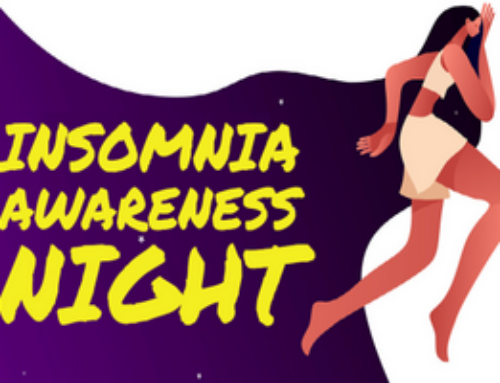Research has shown that cognitive behavioral therapy is an effective treatment option for chronic insomnia. But can online CBT help you sleep better?
Some health insurers think so. The L.A. Times reported that online CBT for insomnia is now covered by some insurance providers.
A study published in the journal Sleep adds to the evidence supporting online CBT for insomnia. The study in Canada involved 118 adults with ongoing sleeplessness. Each participant had struggled with insomnia for at least four nights a week for six months or longer.
Some participants were put on a waiting list; others received online CBT at home for five weeks. The online treatment used video clips as the main teaching component. It also included downloadable MP3 files for relaxation training. PDF files provided psychoeducation and cognitive therapy.
Results show that a five-week, online CBT program helped most people in the treatment group; 81 percent reported at least mild improvement in their sleep. Thirty-five percent rated themselves as either “much improved” or “very much improved.” Thirty percent of treatment group completers were receiving an additional hour of sleep at the end of the program.
People in the treatment group were less likely to report having an overactive mind at bedtime. They also developed healthier attitudes about sleep.
CBT involves a combination of various treatment methods. The treatment program in this study consisted of six strategies:
- psychoeducation about insomnia
- information concerning sleep hygiene
- stimulus control instruction
- relaxation training
- sleep restriction
- cognitive therapy
There are many positive aspects of online CBT. It can be available to anyone with Internet access. Users also may be able to proceed at their own pace and repeat material as needed.
But there are some potential drawbacks. Online CBT may not be as effective as in-person CBT at helping you find the cause of your insomnia. It also may not work as well for people with related problems such as depression.
And some people may fail to follow through with an online treatment program. In the current study there was a 33-percent drop-out rate. Physician-referred participants were significantly more likely to drop out than people who responded to a newspaper ad.
A few previous studies of online CBT for insomnia provided mixed results. An abstract presented at SLEEP 2008 involved a six-week program. Results show that participants increased their average, nightly total sleep time by 80 minutes.
A 2008 study from Japan evaluated a two-week program. The study was published in the Journal of Occupational Health. Sleep quality and sleep-related behaviors improved significantly. After treatment participants were able to fall asleep about eight minutes faster. But there was little change in total sleep time.
A 2004 study from Sweden used a five-week program. The study was published in the Journal of Consulting and Clinical Psychology. Sleep improved in both the treatment group and the control group.
So what’s the bottom line? Online CBT programs have great potential for people who suffer from chronic insomnia. But they may need to be fine-tuned to maximize their effectiveness.





